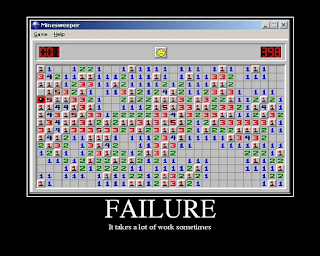Fun fact: the saying "time is money" is attributed to the late Benjamin Franklin, inventor, elder statesman, ambassador and the face of one hundred dollar bills in America. However, as much as Mr. Franklin (or Benji depending on what era of rap you've last heard) accomplished, I take issue with this statement. Time and money, while sharing some characteristics are most definitely not equal.
Money and time are alike in that both can be spent, either wisely or foolishly. They are both commodities that many of us would love to have more of. However, there is one major difference between time and money, a difference that really sets them both firmly in separate leagues. Money can be saved. Time, however, cannot be. As much as we like to talk about time saving devices (the internet, the cell phone, text messages, etc.) the truth of the matter is, even if we used time saving devices every day, at the end of the day, we have as much as we would have if we hadn't used any. Time has to be spent. Money however does not.
I know that this seems like I'm splitting hairs, but we have to spend our time. Most of the "time saving" techniques aren't so much saving time as freeing up what we have to spend our time doing. E-mail removes the time we would spend waiting for correspondence, as does texts, cellphones, and fax machines. Remember what research was like before the internet? I have a vague recollection of giant buildings filled with books, and a decimal system invented by some guy named Dewey that only made sense if you were named Dewey as well. (that I do remeber the .700's were the fine arts, and that's where the comic book collections could be found) Research is now as simple as typing what you want to know into Google (or some other search engine that works almost as well but not quite as well) and sifting through the top ten answers to your query.
Why are we so obsessed with time? Well, clearly it's because we have a finite supply of it. Side note: there's not a finite supply of money. Or at least I don't think there is. If you disagree, Bill Gates is actively working every day to prove you wrong. Our short supply of time ensures that what we choose to do with it reveals much about ourselves. There was a time when that type of knowledge wasn't commonplace. But now, in our era of social networking and increased personal sharing? Now we all know what we do speaks volumes about us.
Why else would there be so many people actively living lifestyles that proclaim their viewpoints? If you go to the gym at noon, you'll see the young professional, walking into the gym in wingtips or heels and a bag full of workout clothes. He or she is telling everyone that they're in control of their career, of their bodies, and of their lives. Swivel a bit to the left, and you'll see the extremely muscular young man in the cut-off T-shirt sipping water and stretching. What is his time use telling you?
How we spend our time says a lot about us. Who we spend our time with, what we spend our time doing, and ultimately, how we allot the time we've all been given. The real question then is, what does the time you spend say about you?





